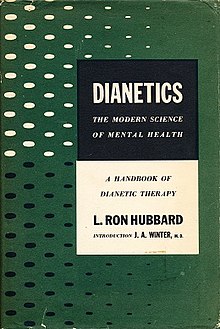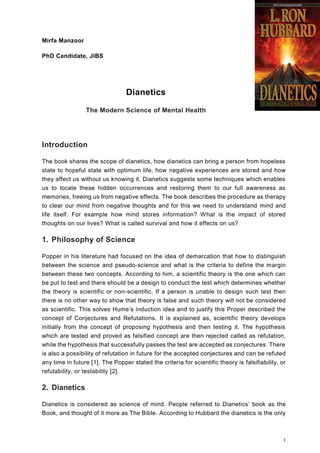The 6-Minute Rule for Dianetics
The 6-Minute Rule for Dianetics
Blog Article
The Ultimate Guide To Dianetics
Table of ContentsEverything about DianeticsThe Of DianeticsThe 8-Second Trick For Dianetics3 Easy Facts About Dianetics Shown
I could not ever not intend to get anything that enters your mind for you- if it was otherwise, I wouldn't be sitting below with you, doing this. I not only could never have an issue, or otherwise intend to hear something that comes to mind for you, yet I'm completely excited to recognize every concept, every thought, every photo or feeling that arises or shows up for you- do not ever believe or else, and if somehow you do, please simply allow me know! In some cases, you may have a thought, and picture, idea or case turn up that does not seem to address the concern, or connect to it, but nonetheless, constantly do tell me concerning it, and as we continue, the significance will arise for you.This is intrinsic in the basis of processing, and the topic of this conversation: the standard duties of the counselor and the client: The standard role of the therapist is, unlike "typical training", not to manage, which suggests to implement and/or prevent, but to rather work from the basis of EMPOWERING THE CUSTOMER.

Getting My Dianetics To Work
John Mcmasters expressed this fundamental truth incredibly well in one of his lectures on Power processing, where he describes how he was asked what this "special knack" was that he had for providing such great sessions; he had to assume concerning that for a moment, and identified that it was what he had not been doing, as well as what he was doing: he wasn't reviewing, evaluating, computer, or as a matter of fact, creating any ideas, not to mention verbal expressions, after offering the command and while awaiting the computer to complete their response to their contentment; he was, simply and just, existing with the computer, and completely interested.
The role of the counselor, showed; that was his "special flair". I have actually had my own experience which educated me this well, really early in the video game. In 1982, having lately completed my training and internship on New Age Dianetics, I was running this on a PC, and there was a point in the session where (being a bit wet behind the ears not yet having several hours under my belt as an expert auditor) the PC appeared to be "taking also long" to express anything verbally after I provided him a command.
This secret turned out to be the most important payment that John ever made to the subject of treatment or auditing (Dianetics). In my humble opinion, it is the best contribution that anyone has ever made to these subjectsthe application is totally non-judgemental, non-evaluative, and lacking any idea, guidance or opinion.no preconceived program for people, or 'levels' that they need to do
In Idenics, the only source of information regarding a client is the specific client. In Scientology we prided ourselves on not assessing for individuals. Yet all that really meant was that the auditor did not vocally examine for the computer in session. The registrars and ethics policemans assessed for the PC.
About Dianetics

Anyone that had ever before seen John audit can not aid yet see an unique high quality in his auditing."The client's standard duty is to be there with the purpose of moving in the direction of their spiritual goals, and to openly and fully express and experience whatever shows this link up for them in addressing the questions and executing the directions in the processing.
This is something to procedure as needed. Also, individuals regularly have previous experience and/or indoctrination in auditing/processing which, in some ways, and to some degrees, in fact misguides them into attitudes, concepts and behavior patterns that avoid the full awareness of these functions, and so they will certainly tend to prevent the expressing of what comes to mind, as in the instances offered over - Dianetics. * The first, and probably leading instances of mis-indoctrination causing much less than entirely smooth and effective sessions, can be located in particular facets of the training regimens, or "TR's":"TR's" are often a person's initial, or at the very least early, experience in Scientology, and while I will certainly go on to discuss what I see as the defects in idea and technique, nevertheless, often tend to be greatly restorative, done as they are offered (Hubbard insists that see it here "TR's are not processing, they are training", however factually, they are both handling AND training)
There is no "failing", and no denial of the truth of this being processing. The focus, as it must be, is on experiencing the various other person's existence.
Some Ideas on Dianetics You Need To Know

Report this page